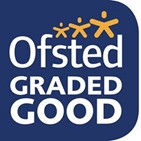Our Approach
At Bonneygrove, we ensure that our teaching and learning experiences are real, rich and relevant, researched -based, and consider children's learning styles. We have high expectations for our children from the outset and encompass the 'whole child' - where education is accessible for all. Our goals are to enrich the learning and teaching opportunities to foster lifelong learners, ensuring inclusion remains at the heart of everything we do. We look at research that supports how best teachers teach and children learn. Barak Rosenshines' Principles of Instruction underpin our main teaching goals – these allow us as teachers to plan well-structured lessons that are innovative and ensure that all learners can achieve outcomes. We also promote Guy Claxton's 'Building Learning Powers' in our classrooms and beyond, ensuring our learners are given every opportunity to succeed through effective questioning and self-regulation (metacognition) to succeed in their knowledge acquisition. Through research gathered Education Endowment Foundation (EEF), our teaching and learning community have benefited from many research projects undertaken, none more so than 'effective feedback' – where children are given every opportunity to receive feedback throughout lessons and act upon the guidance received.
The children at Bonneygrove Primary School are encouraged to work collaboratively throughout lesson time. This process ensures every child has the opportunity to discuss, question and develop oracy skills and appropriate curriculum vocabulary in all subjects. Children build their knowledge and skills development over time. Our curriculum objectives are taught sequentially in small steps, ensuring that each lesson maximises learning time. Teachers check for understanding throughout the lesson and address misconceptions in a way that maintains children's self-esteem – even when they are being challenged through the deepening of their knowledge. We actively support children in being responsible for their learning – we do this in many ways, including; self and peer assessment opportunities and by setting their own goals, taking risks and questioning peers and teachers for understanding.















